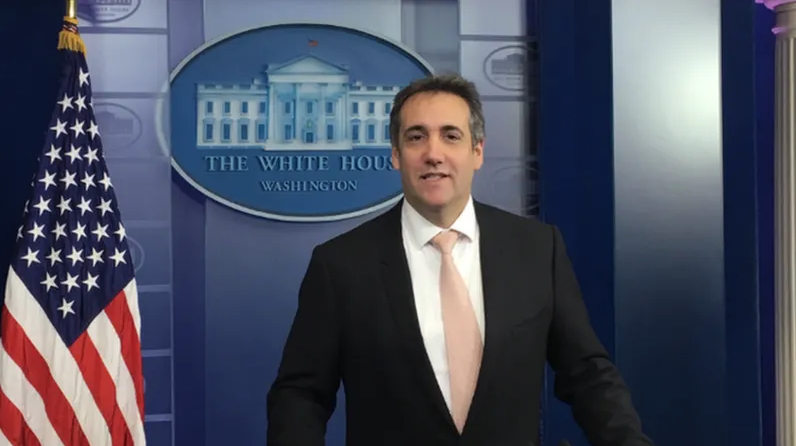By his own account, South African business tycoon Johnny Copelyn is “embarrassingly rich”.
Since the discovery of oil in Namibia last year, he’s even richer.
His wealth has grown by about N$1 billion, making him one of the biggest winners in the scramble for the country’s potentially newfound oil reserves.
His 7,6% stake in the company with interest in Namibian oil blocks was worth N$460 million in 2021.
By August this year, it had jumped to N$1,4 billion, thanks to the oil discovery in Namibia.
Copelyn’s company’s oil businesses in Namibia were entangled with that of oil fixer Knowledge Katti, a politically connected businessman.
His company is already considering selling a part of its stake in a Namibian oil block, which could earn the South African outfit between N$8,5 billion and N$17 billion.
That windfall has raised new questions about whether Namibia’s oil wealth would benefit ordinary citizens.
This comes amid calls for greater transparency in a system where even the Ministry of Mines and Energy says it doesn’t know who owns the oil exploration licences awarded by the petroleum commissioner.
The offshore oil find in southern Namibia is known as the ‘Venus deposit’, a romantic moniker for what’s formally known as Block 2913B, covered by petroleum licence 56.
This is one of six licences Copelyn’s Hosken Consolidated Investments (HCI) has a stake in.
Copelyn’s existing investments cover a range of South African enterprises, from casinos and hotels to news broadcaster eNCA.
South African media last year reported that Copelyn donated N$2 million to South African president Cyril Ramaphosa’s political campaign.
His oil exploration in South Africa was met with widespread opposition from environment activists.
Copelyn’s vast business dealings mark a dramatic shift for a man who started out as a socialist trade unionist.
His energetic embrace of capitalism earned him the label of a “walking contradiction” by South Africa’s Mail and Guardian.
Copelyn company’s business association in petroleum blocks with serial speculator Katti has been flagged by industry insiders.
Institute for Public Policy Research executive director Graham Hopwood says the oil discoveries should not be about creating more individual billionaires, but should enable Namibia to tackle its socio-economic challenges.
“We should avoid rent seeking at all costs. Unfortunately, this has been the policy of the Ministry of Mines and Energy over the last decade – to include Namibian briefcase companies that were often linked to politicians via family members or proxies in petroleum exploration licences,” he says.
With the Namibian Venus deposit discovered in February 2022, Copelyn’s company also partnered with oil majors such as TotalEnergies and QatarEnergy.

TotalEnergies owns 40% of the block, QatarEnergy 30%, Impact Oil and Gas 20%, and Namcor 10%.
Copelyn’s spokesperson, Andrew Turner, this month confirmed to The Namibian that HCI is a shareholder of Impact Oil & Gas, the company that represents its oil interest in Namibia.
Turner however, refused to answer questions about Copelyn’s business ties to Katti, who has paid president Hage Geingob’s medical bill in Cuba.
Turner referred The Namibian to a media release on Impact Oil & Gas’ website.
“HCI is a major shareholder of Impact, and the chief executive of HCI, Johnny Copelyn, is the chairman of Impact’s board,” he said.
THE VENUS AFFAIR
Copelyn’s business ties to Namibia can be traced back to over a decade ago.
His businesses in Namibia are carried by Impact Oil and Gas, a company that was started in 2009 by a group of geologists who targeted a number of exploration areas off the coast of South Africa.
The Impact Oil & Gas business model was centred around securing petroleum exploration licences, adding value and selling to larger international companies.
Impact entered licence 56, block 2913B in the Venus oil prospect, which was held by Katti’s company.
Katti did not respond to questions sent to him this month.
TotalEnergies bought a 40% stake to enter that block in 2017 while QatarEnergy acquired 30% in 2019.
The Namibian oil discovery announcement increased Copelyn’s wealth, with HCI share prices in South Africa soaring from N$74 in January 2022 to N$177 in May 2022.
In August this year, the price had risen further to N$221 per share.
HCI’s integrated report for 2021 shows that Copelyn indirectly owns 7,6% of the entity.
With 85,6 million shares, the company was valued in August at N$18,9 billion.
At 7,6%, Copelyn’s riches in the company increased to N$1,4 billion.
Copelyn’s purse could increase further as Impact Oil & Gas is considering options to sell its 20% stake in Block 2913B.
Impact Oil & Gas could earn between N$8,5 billion and N$17 billion from the deal.
Reuters reported in 2022 that Impact Oil & Gas hired investment bank Jefferies to prepare the shares sale process.
A WALKING CONTRADICTION
Copelyn rose from trade unionism to politics and served as the head of the investment wing of the prominent Southern African Clothing and Textile Workers Union.
He became a member of parliament representing the ANC in the first post-apartheid parliament in 1994, but resigned before the end of his term, and in 1997 began serving as HCI’s chief executive.
Copelyn wrote a book titled ‘Maverick Insider’ on the transformation of the labour movement in South Africa between 1970 and 1996.
The book raised debate on unionists embracing the trappings of capitalism.
“There were too many opportunities to simply close one’s eyes and throw up one’s purist hands in disgust,” Copelyn said in his book.

DEALMAKER
South African editor and writer Marc Hasenfuss has been reporting on HCI’s affairs for years.
He told The Namibian last week that the increased value of HCI’s shares is exclusively driven by the prospects of being able to sell its stake in the Namibian oil block.
“The company itself said it hoped to pay off all its debt with the proceeds from selling their stake in the (Namibian oil) deposit,” he said.
Hasenfuss said it was initially surprising how much HCI was investing in oil and gas.
“If I remember correctly, they had always set a limit for investment size of between N$250 million and N$500 million. The investment in oil and gas has been many times that. That said, the market backs Copelyn.
“He is a smart dealmaker, who is always six or seven steps ahead, and HCI’s capital allocation has been exemplary,” Hasenfuss said.
Hasenfuss doesn’t see it as a long-term involvement.
“They need to sell their rights to Venus to deal with the debt on their balance sheet,” he said.
TRANSPARENCY
Hopwood says the Access to Information Act requires the government to proactively disclose its contracts, agreements, licences and permits with the private sector.
“We would like Namibia to join the Extractive Industries Transparency Initiative, which would require us to introduce multi-stakeholder monitoring bodies that would include the government, private sector and civil society,” he says.
“ . . . create a disbarred list of companies and individuals who have previously been involved in corruption so they cannot compete for contracts,” he says.
– Former The Namibian reporter Lazarus Amukeshe contributed to this report.
– This report was produced by The Namibian’s Investigative Unit. Send us story tips via your secure email to investigations@namibian.com.na
Stay informed with The Namibian – your source for credible journalism. Get in-depth reporting and opinions for
only N$85 a month. Invest in journalism, invest in democracy –
Subscribe Now!






